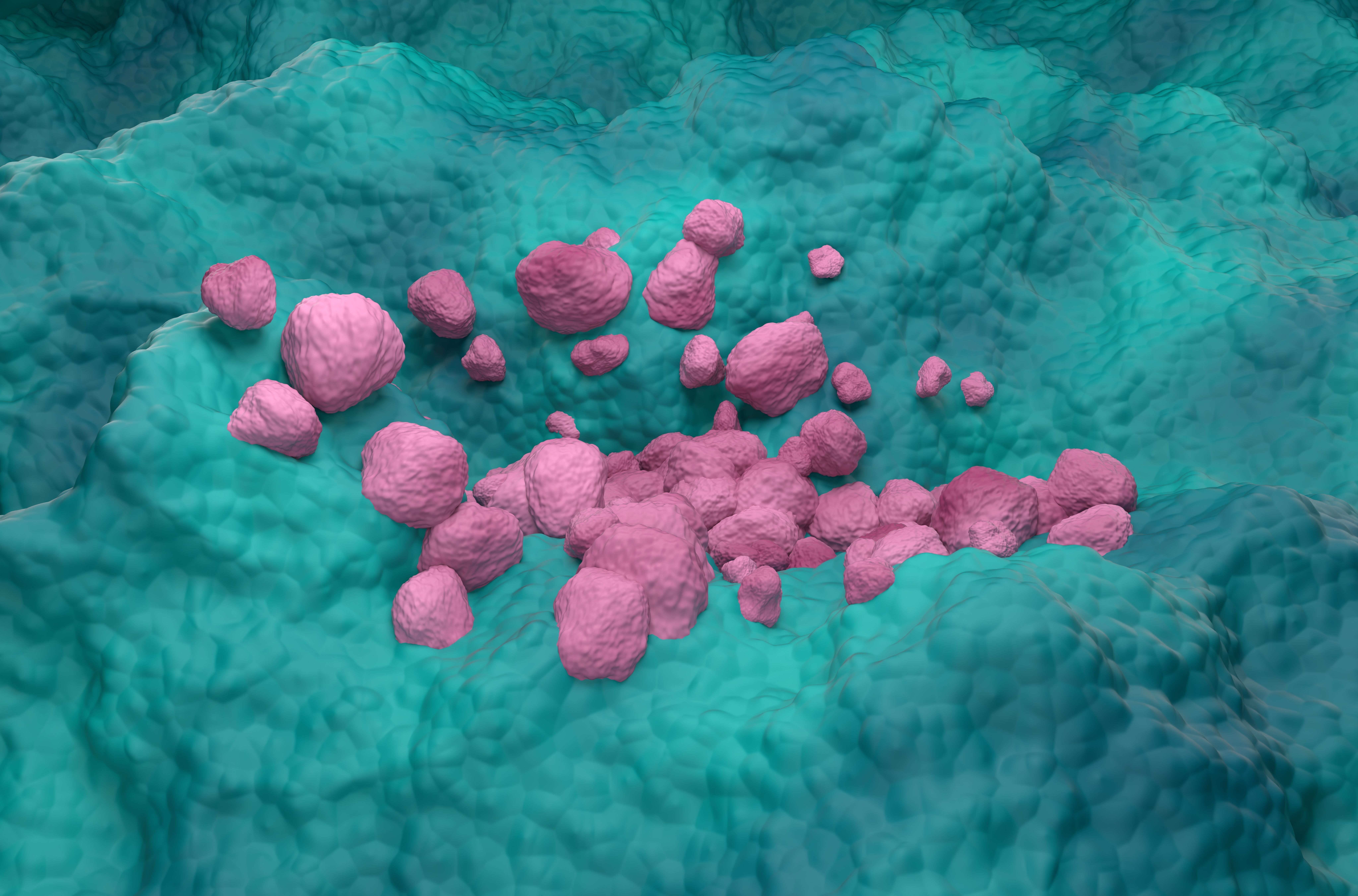On average, 577 people in the United States who have never smoked or who have smoked 100 or fewer cigarettes in their lifetime will be diagnosed with non-small cell lung cancer (NSCLC) every week this year.1 By the end of this year, as many as 30,000 never-smokers will be diagnosed with non-small cell lung cancer.1 Although the 5-year survival rate for NSCLC is as high as 65% (if the disease is found locally), there are currently no reliable approved treatments for patients whose cancer has spread or recurred, and they are quickly running out of options.1 For 70 percent of patients whose cancer had spread to lymph nodes, the five-year survival rate dropped to 37 percent, and to 9 percent for those whose cancer had spread further.1
For a disease that is difficult to avoid in people who have never smoked, the survival rate from this disease is unacceptable, and the disease often has no obvious symptoms until it is advanced. Overall, only 16% of lung cancer patients are diagnosed early, significantly increasing the need for treatment options other than chemotherapy.2
To address this need, researchers have enrolled patients in the multicenter, open-label Phase 2 Harmonic clinical trial, a multicenter study evaluating the investigational drug LP-300 (Lantern Pharma). The trial is targeting patients who have never smoked and have recurrent, inoperable advanced primary lung adenocarcinoma, a type of non-small cell lung cancer.
Non-small cell lung cancer cure rates in never-smokers
Up to 80% of lung cancer cases in never-smokers (LCINS) are adenocarcinomas, which originate in the alveoli, or the millions of tiny air sacs in the lungs. When adenocarcinoma is detected at an advanced stage, which is often the case in this patient population, it may limit the available treatment options.3 Even for those patients whose NSCLC is caught early, when surgery is a viable option, an estimated 30% to 55% will experience incurable disease recurrence, which is where the LP-300 drug candidate is designed to Create benefits for these patients.4
Up to 80% of lung cancer cases in never-smokers (LCINS) are adenocarcinomas, which originate in the alveoli, or the millions of tiny air sacs in the lungs. Image source: © LASZLO – stock.adobe.com

How patients get NSCLC also has an impact on health outcomes. Approximately 85% of lung cancer cases in the United States are related to smoking, but an estimated 18% to 36% of LCINS cases are related to secondhand smoke, and 7% to 14% are related to radon exposure.5.6 Exposure to air pollution, asbestos, diesel exhaust and other chemicals, as well as a family history of lung cancer, also increase the risk of LCINS. Additionally, patients may not know they have been exposed to these carcinogens—especially radon—and because the CDC does not recommend lung cancer screening for never smokers, by the time these patients develop obvious symptoms, the disease may have already develop to an advanced stage. Lung cancer basically caught them off guard.
Research on LP-300 used in LCINS
In 2013, researchers completed a series of Phase 3 clinical trials to evaluate the potential of LP-300 to reduce or prevent adverse effects of chemotherapy in patients with NSCLC cancer. While the results from these clinical trials do not support use of this therapy in all patients with lung cancer, the data show it has the potential to improve positive outcomes in non-smoking patients with non-small cell lung cancer. In fact, in those clinical trials, never-smokers who received LP-300 in combination with chemotherapy experienced a 91% improvement in overall survival and a 125% improvement in 2-year survival.7 Importantly, these data pave the way for future studies of the efficacy of LP-300 in the treatment of LCINS.
What’s next for non-small cell lung cancer research?
In July 2022, the FDA approved the initiation of the Phase 2 Harmonic clinical trial, which is studying LP-300 for the treatment of never-smokers with NSCLC. These patients are a unique and growing group of patients whose lung cancer has been shown to be genetically distinct from the same disease found in smokers. The trial, which offers first treatment in March 2023, is evaluating LP-300 when combined with standard-of-care chemotherapy, pemetrexed and carboplatin. The ongoing Phase 2 clinical trial of LP-300 is designed for 90 patients, providing a two-thirds chance of receiving LP-300 in addition to standard-of-care chemotherapy.
Our ultimate goal is to find treatments for advanced NSCLC in non-smokers, and this new clinical trial brings hope that this goal can be achieved in this patient population.
About the author
Panna Sharma is the President and CEO of Lantern Pharma.
refer to
- Cancer Network. Lung cancer—non-small cell: statistics. 2023. Accessed 2 November 2023. https://www.cancer.net/cancer-types/lung-cancer-non-small-cell/statistics
- Babar L, Modi P, Anjum F. Lung cancer screening. Statistics pearls. January 2023. Accessed 2 November 2023. https://www.ncbi.nlm.nih.gov/books/NBK537283/
- Centers for Disease Control and Prevention. People who have never smoked develop lung cancer. Date of access: November 2, 2023. https://www.cdc.gov/cancer/lung/nonsmokers/index.htm
- Uramoto H, Tanaka F. Postoperative recurrence of NSCLC patients. Translational lung cancer research. 2014;3(4). doi:10.3978/j.issn.2218-6751.2013.12.05
- CDC. Lung cancer: What are the risk factors? Date of access: November 2, 2023. https://www.cdc.gov/cancer/lung/basic_info/risk_factors.htm
- CDC. People who have never smoked develop lung cancer. Date of access: November 2, 2023. https://www.cdc.gov/cancer/lung/nonsmokers/index.htm
- Lantern Pharma received FDA authorization to initiate a Phase 2 clinical trial of LP-300 Harmonic™ for the treatment of never-smokers with non-small cell lung cancer. (Press Release) Lantern Pharmaceuticals. July 2022. Accessed 2 November 2023. https://ir.lanternpharma.com/news-events/press-releases/detail/90/lantern-pharma-receives-fda-authorization-to-initiate-its
